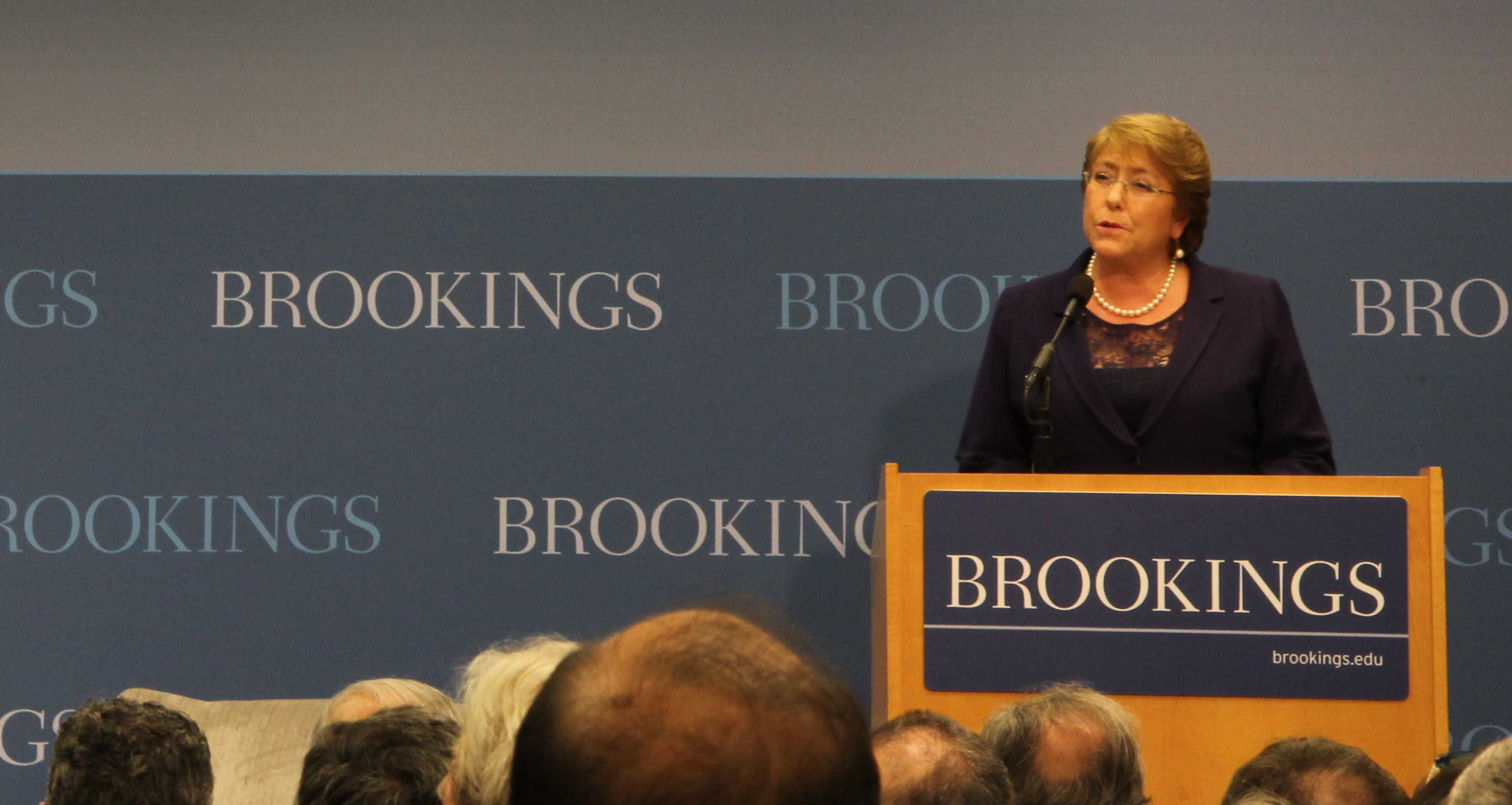WASHINGTON — Chilean President Michelle Bachelet Monday outlined a far-reaching plan for the Latin American country’s growth through education reform to answer student protests and tax reform to address the country’s high rate of income inequality.
“We have set ourselves ambitious goals. But we are taking a realistic approach to these economic conditions facing us,” Bachelet said during a speech at the Brookings Institution.
“We need to generate more economic growth, but not growth of any kind. We need growth that is socially legitimate and inclusive, environmentally sustainable and democratically oriented.”
The newly re-elected Bachelet’s proposed path to growth is rooted in Chile’s recent economic slowdown, high rates of income inequality and student dissatisfaction with the country’s education system.
As Bachelet acknowledged, Chile’s economy is dragging, growing at about 3 percent instead of the 5 percent the Chilean government had originally predicted. According to the Organization for Economic Cooperation and Development, of which the United States is a member, Chile has among the highest rates of income inequality of any participating countries.
Bachelet said she plans to focus on “structural reform of education,” “stimulation of economic growth and productivity,” “tax reform providing ongoing resources for the state” and crafting “a new constitution.”
According to Cynthia Arnson, director of the Latin American Program at the Woodrow Wilson Center for International Scholars, Bachelet’s educational and tax reform efforts are the most significant part of her plan.
“The education reform respond[s] to the [Chilean] student protest movement that started staging large demonstrations several years ago protesting the high level of student debt and the lack of access to quality public education. So that’s a key one,” Arnson said.
“The tax reform, which is likely to pass and has already passed one of the houses of congress, is also critical to address the levels of inequality in the country, and also to finance some the ambitious reforms that have been contemplated.”
Bachelet said Chile’s relationship with the United States has inspired efforts to improve energy use and provide resources for small business growth.
Chile’s growth has implications for the United States due to the countries’ shared trade agreements, including the Trans-Pacific Partnership, which Bachelet discussed with President Barack Obama during her visit to the White House. The TPP includes 12 different countries from various world regions, but is being renegotiated.


